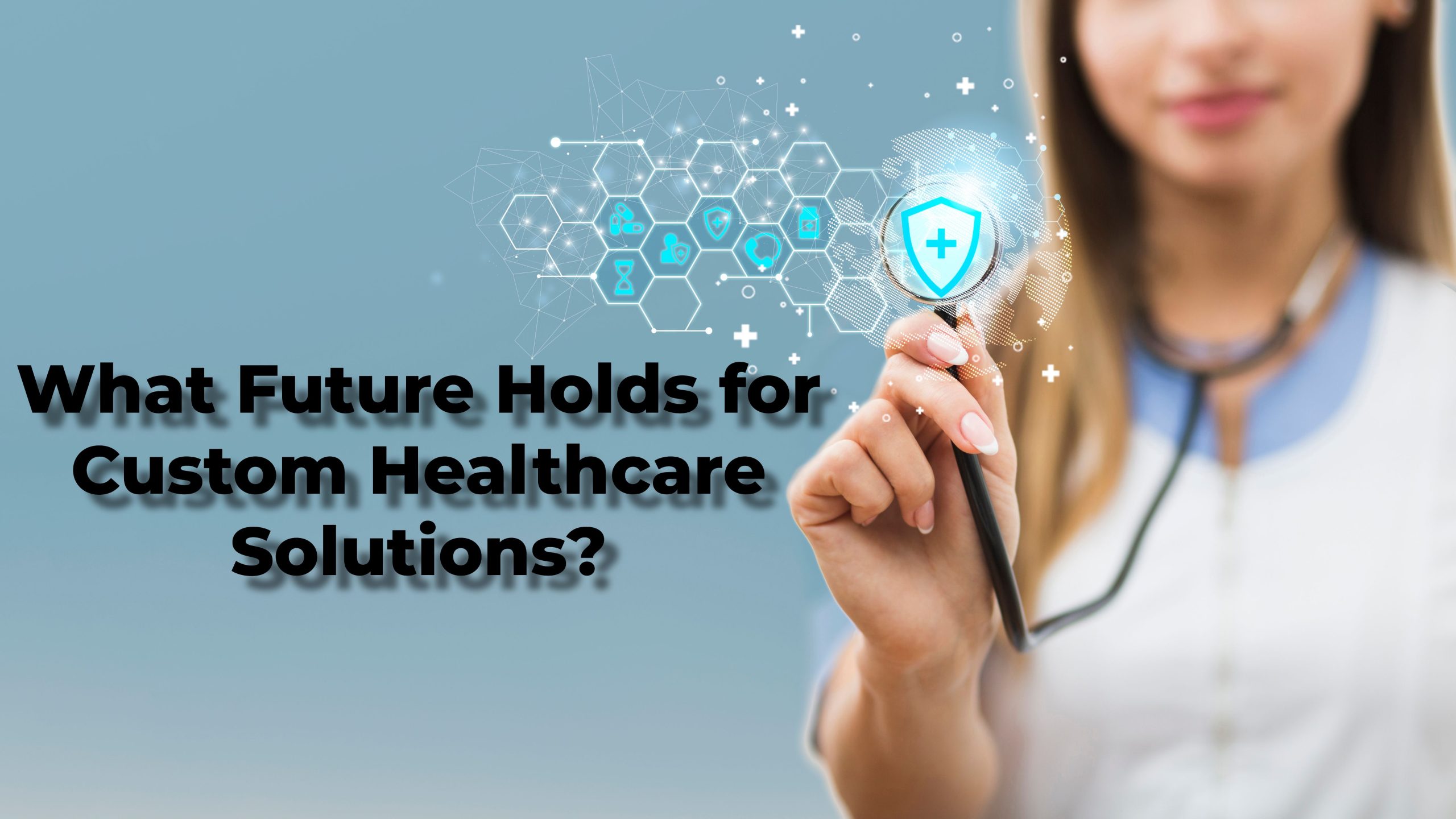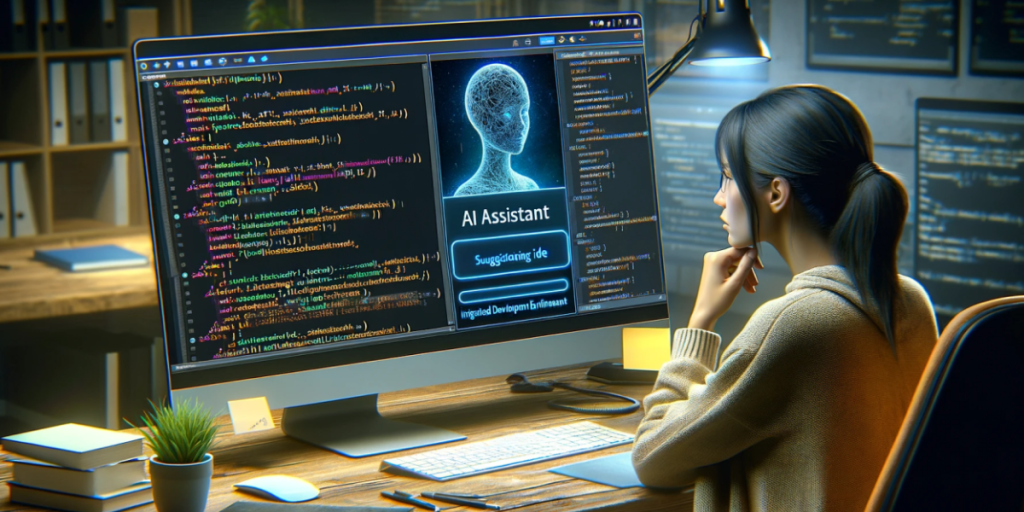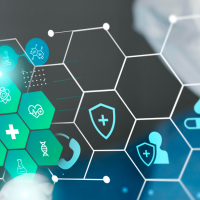Healthcare companies are now focusing on custom solutions to provide the best possible treatment to the patients. With digital technologies evolving rapidly, healthcare solutions providers now have an unprecedented chance to improve patient care while improving operational efficiencies. With this growing demand, customized healthcare solutions are vital to making healthcare more efficient and modern. The ever-changing healthcare industry that places the care of patients, management of data, and efficiency in administration are crucial. Companies require customized solutions to meet their particular needs.
Innovative, custom-made healthcare solutions have changed how we think about healthcare. With patients requesting more personalized services and doctors striving to achieve more efficiency, custom software has become an exciting solution. Custom-designed software leads the race, allowing health professionals to offer the most efficient treatments.
This blog will examine how customized healthcare solutions developed by Medical Software Development Company will change healthcare and what is in store in this fast-growing industry. Take a seat and get prepared to learn how the latest technology is revolutionizing the design of healthcare facilities in the modern age!
What Is a Healthcare Solution?
Health solutions encompass a vast array of techniques and technologies aimed at improving patient care and streamlining healthcare procedures. Below are the main types of digital health care:
Electronic Health Records (EHRs)- They help manage data and allow healthcare professionals to easily access patient data.
Telemedicine- It uses the Internet for remote consultations and medical services, breaking down geographic barriers and making health services more readily available.
Apps for healthcare– These applications provide personalized health-related monitoring as well as medication reminders and access to medical information that help users control their health better.
Wearable devices- These include smartwatches, fitness trackers, and even smartwatches that collect health information in real-time and encourage healthy, preventative lifestyles.
Artificial Intelligence:-AI-powered diagnostic tools boost diagnosis accuracy and allow earlier detection of diseases and personal treatment plans.
Medical IT solutions can help build an integrated, patient-centered healthcare system by improving accessibility, efficiency, and quality of care.
Role Of Custom Healthcare Solutions In The Digital Landscape
COVID-19 has made us aware as a species that our environment is likely to change within a matter of minutes. It exposed the weaknesses of every industry, particularly health organizations worldwide. Since it revealed the problems with the medical equipment, staff, and health care for patients, as well as health and medical data access and infrastructure.
There was a belief that organizations involved in health care could only partially rely on their capabilities and supply chains to be successful; therefore, they had to take a collective strategy. The approach led them to collaborate with solution providers and organizations that specialize in solving problems by introducing new ideas. Expert medical experts assist in the process by using cutting-edge health IT software, which allows organizations to collaborate more effectively and address their obligations.
The Need For Custom Health Solutions
One of the most common questions is why health organizations invest in developing custom software. We’ll look at some convincing arguments:
Advanced Diagnosis:
Customized Healthcare Software Development provides the latest diagnostic tools, enhancing their capabilities to give precise and prompt diagnoses.
Improved Security
Strong custom solutions protect against unauthorized access, information leakage, and cyber attacks, safeguarding patient privacy and ensuring data security and integrity.
Virtual Consultations
Telemedicine and other bespoke solutions allow virtual consultations, increasing access to healthcare and enhancing patients’ experiences.
Efficient Health Record Management
The custom EHR software helps manage patients’ health records, allowing healers and providers to view and edit data seamlessly.
Error Reduction
Custom-built software drastically reduces the potential for human error by automatizing procedures and eliminating the need for manual data entry, leading to superior care.
Patients-Provider Relations
Tailor-made software facilitates communication between providers and patients to improve relationships and increase confidence. A higher ROI (ROI) Custom software solutions are long-lasting and offer a great return on investment by improving operations efficiency and patient outcomes.
Brand Image
By providing a unique experience centered around patients, healthcare organizations are able to establish an image of their brand that resonates with their customers.
Scalability
Custom software will adapt to the organization’s demands and the requirements of the healthcare industry.
Multi-Platform Support
Healthcare software solutions are designed to run seamlessly across different platforms, providing accessibility to all patients.
Leading Trends in Tech and Healthcare Software Solutions
Today, technological innovations are revolutionizing sectors, and healthcare is not one of them. A growing demand for personalized, safe, effective, and reliable healthcare solutions has led to the popularity of customized solutions. Watch out for the top future trends.
Big Data and Healthcare Information
Healthcare providers have long collected data. It is made up of reports, records, photographs, interviews, and DNA samples. It is important to note that it is unstructured, which means it’s difficult to understand. The data could be presented in an unstructured format, or it might not even be written in a language simple to comprehend.
Since healthcare data is not structured, it is much more challenging to analyze than structured data. Although there’s plenty of information in the health sector, it’s not valuable to analyze the data. If you identify the reasons, it’s only helpful to find out how many people were in the emergency room this month. The term “big data” refers to the accumulation of information points that are hard to understand.
Telemedicine And Remote Healthcare Services
One of the significant fields of development in healthcare software is now focusing on Telemedicine. Its primary goal is to ensure that medical care can be made available to patients who live in rural and remote zones. This form of medical care has also become necessary in the context of COVID-19 limitations. It is difficult for people to access healthcare facilities in lockdowns, regardless of whether they reside near a city. Therefore, ensuring that all citizens can access medical experts is essential.
Naturally, video-conferencing applications like Zoom or Skype allow patients to talk with doctors online. However, a reputable medical software development company could enhance this, making it possible for medical assistance to areas with no high-speed internet connections or numerous medical specialists available online to provide consultations. Additionally, using AI for healthcare software development will allow for automated initial consults. Thus, more people will receive the assistance they require.
AI Helps Doctors Make Accurate Diagnoses
Health professionals use computers to make exact diagnoses daily—computers power imaging techniques like X-rays, MRIs, and CT scans. Doctors may also utilize computers to study their patients’ ailments, their progression, and their adverse effects. Computers can assist healthcare professionals in communicating their findings to one another. For example, a physician could need to convey their treatment and diagnosis to patients in a language they can comprehend.
Personal Medical Devices
Healthcare SaaS is utilized to develop different personal devices to monitor and measure patients’ health. Most of the instruments available are now wearable trackers that can monitor heart rates, oxygen saturation levels, blood pressure, and temperature.
But there are more gadgets on the way. Several companies are developing instruments that measure vital indicators and other parameters necessary for patients suffering from chronic illnesses. As time passes, these monitors will allow sending a request for assistance from an expert medical doctor. Additionally, the data gathered by these devices can be utilized for better diagnosis.
Healthcare Software Development Based On AI
AI’s data processing, analytics, and automated capabilities are exhilarating. Thus, AI-based solutions for healthcare could have a wide range of applications like:
- It is making personalized treatment plans based on analyzing different data sources.
- Automatization or monotonous, repetitive work, like filing or paper management, frees some time for medical staff.
- More in-depth diagnostics are conducted using techniques that automate image analysis and classification.
- Processing, collecting, and maintaining medical information. It is also beneficial to put the records in an online network that ensures anyone traveling can receive the most effective medical care regardless of where they live.
The use of AI to develop healthcare software helps improve the effectiveness of disease control and prevention. It is essential to be aware of practices such as facial recognition and the use of sensors to monitor body temperature, which could be seen as a widespread form of surveillance. So, governments and developers must work together to ensure that these methods are effective and do not violate humans’ right to privacy.
Virtual And Augmented Reality Technologies
The combination of healthcare software development and VR and AR technology can yield excellent outcomes. The solutions aid in the treatment of severe disorders such as PTSD anxiety and PTSD, as well as treatments for pain.
Additionally, some new techniques use this technology to aid in rehabilitation. They are particularly helpful in restoring motor abilities and can even help treat memory loss. Moreover, surgeons and hospital staff can also use different VR options to help improve their jobs. For example, ImmersiveTouch or Osso VR technology is used in surgical training and education.
Healthcare Data Becomes an Asset
In the past, healthcare providers viewed their patient data as an issue. They wanted to ensure patients’ privacy and stop using sensitive data. The value of data is significant in the case of unstructured data. AI can make sense of any information and convert it into something valuable.
Automated systems and robots can take this data and offer it to organizations in the same way they have done for other kinds of information. Though this could be seen as an invasion of privacy, it’s actually an excellent thing. Better access to data can result in better treatment, more efficient processes, and lower healthcare costs.
Nanotech And Robotics
Technologies that were once only in Science fiction books are actually now. The technology fields are still in the beginning stages of development. However, we can already discover amazing robotic prosthetics that can transform disabled people’s lives.
Nanotech is a slow industry in its development. However, researchers are aware of its enormous potential. Tiny tools already allow for noninvasive diagnostics and some essential biosensors. While robotic solutions for healthcare don’t have to be restricted to only prosthetics, some labs are currently developing diverse types of robots to aid disabled patients and become personal companions for those with disabilities.
The use of robotics and nanotechnology is extremely careful and requires highly innovative Custom Healthcare Software Development. Combining these devices with AI could truly change the way we think about it.
The Importance Of Digital Solutions In Healthcare
In the current medical world, digitization is really altering the way things are done and is making a huge impact on how patients are treated and how they can be improved. They’re also improving accessibility to healthcare by allowing patients to access healthcare regardless of where they live, breaking down the traditional obstacles of distance. In addition, they’re helping things flow more smoothly by assisting doctors in identifying and treating patients more efficiently.
It’s about more than just the logistics. These technologies are also bringing patients more into the conversation, giving them tools to keep track of themselves, customized health plans, and ways to connect with their medical team. Healthcare should seem more individual and tailored to the individual.
Naturally, there are some challenges, for instance, the need to ensure that patients’ private information remains secure and that everybody can access the same digital devices. However, despite these issues, it’s easy to see technology’s incredible potential in health care.
Healthcare Technology Solutions: Their Role in Protecting Vaccines and Medical Products
Healthcare technology solutions that utilize environmental sensors such as electronic sensors, ready-to-use temperature indicators, and printable temperature sensors provide businesses with valuable insights for making decisions that impact patient care, such as regarding vaccines or other temperature-sensitive medical products. The proper storage and handling of vaccines are essential for maintaining their effectiveness and potency; any deviations from the prescribed temperature can cause them to be ineffective or even dangerous to patients. Healthcare technology solutions like sensors for environmental conditions can offer vital information that could affect the final decisions healthcare professionals take regarding the treatment of patients, particularly about vaccines as well as medical devices:
Temperature Monitoring
Accurate environmental sensors are installed in storage units, refrigerators, and freezers in which medicine and vaccines are stored. These sensors can detect and track the temperature to ensure that they’re within the range recommended by experts. Suppose there are abnormal or unusual temperature variations. In that case, The system will provide real-time notifications to health professionals, giving them the data they must analyze and immediately take action to avoid degradation or spoilage of the product.
Cold Chain Management
Effective cold chain management is an integral component of supply chain strategy that must ensure safe storage, transportation, and distribution of temperature-sensitive medical products such as vaccines. Health technology solutions can track the flow of these goods through the cold chain by using technologies for location tracking and data logs. End-to-end visibility gives companies information that will help them identify possible obstacles or problems within the supply chain. Vaccinations must be distributed and stored safely until they are delivered to the patients.
The best way to prevent product waste is by using temperature sensors. Temperature sensors can provide valuable information that businesses can utilize to make educated decisions to avoid the waste of vaccines, a healthcare issue. With real-time temperature information, health professionals can analyze and use the data to take appropriate steps to prevent spoilage caused by fluctuating temperatures. Checking for temperature variations is an excellent way to ensure that vaccines or medical supplies remain within the proper temperatures. Making informed decisions throughout the cold chain may assist in optimizing their usage as well as reduce the overall cost of healthcare.
Compliance and Quality Control
Environmental sensors are essential in providing healthcare professionals with the information needed to ensure quality control and adherence to laws governing vaccine storage and handling. Sensor data may be utilized as auditing data. Hospitals can use the information to make informed choices and determine ways to adhere more closely to essential standards and guidelines established by regulators regarding temperatures.
Alerts And Remote Monitoring
Healthcare technology products with remote monitoring features allow health professionals to monitor the conditions in the environment and track fluctuations in temperature from a central area. In the event of a temperature anomaly or a temperature breach, the system will issue alerts to personnel, allowing staff to immediately correct the issue and reduce possible risks for the patients.
Improved Patient Safety
Healthcare technology solutions provide providers with essential data about patient safety by monitoring whether vaccines and temperature-sensitive medical products are stored and handled appropriately based on environmental conditions, providing healthcare providers with important insights for making informed decisions regarding patient wellbeing. Patients must receive effective vaccinations that won’t provoke adverse reactions while remaining robust enough for use against disease.
Analytics and insight in real-time data gathered by sensors in the environment can be analyzed to get important information about storage patterns, temperatures, trends in temperature, and potential dangers. This information can assist hospitals in improving their storage procedures, making educated decisions, and taking precautionary measures to protect the effectiveness of vaccines and provide patient care.
How Can IT Solutions For The Healthcare Industry Improve Healthcare Compliance?
IT solutions for healthcare are essential to improving compliance with healthcare standards by providing high-end tools and solutions. That can effectively meet regulatory authorities’ requirements. The reporting process has been streamlined, and manual paperwork has become a thing of the past. Technology solutions can automate compliance processes, including managing the patient’s consent and keeping the audit trail. Healthcare organizations can then quickly act on deviations in real-time, lessening the likelihood of violations.
The patient’s data is susceptible. Security measures are strengthened by IT systems with a robust encryption system, access control, and intrusion detection systems. Regular vulnerability checks and proactive monitoring of threats protect against data breaches.
IT-based solutions allow healthcare institutions to protect patient privacy. Following GDPR’s guidelines will ensure that personal identifiable information (PII) remains private. Consent management tools enable open communication with patients and allow them to control the use of their data.
So IT solutions often play the under-appreciated individuals behind the scenes, making sure that compliance with healthcare standards. It is more than just a checklist of items to check off—it’s an obligation to patients’ health.
Final Thoughts
Through new approaches to innovative healthcare delivery and technology integration, the future of healthcare and medical solutions looks promising. Digital health analysis and customized patient-centered healthcare facilitated by genomics and AI-powered technology will make the future of healthcare much more affordable and efficient than before.
Numerous possible trends in healthcare solutions will shape the healthcare industry. This includes the widespread use of Telemedicine and virtual healthcare, big data, and machine learning to improve predictive models and cu endearments. Also, wearables and IoT devices can be integrated for remote monitoring and real-time data analysis. Future implications of healthcare technology are significant and can improve patient outcomes, reduce healthcare costs, and expand healthcare access unprecedentedly.
However, legitimate concerns remain surrounding data security and privacy and whether these systems create more medical discrepancies. Addressing these issues and ensuring that the positive effects of healthcare technology are properly distributed is crucial.
In the current healthcare landscape, characterized by advancements in technology, legislative changes, and societal changes, it is essential to take advantage of innovation responsibly. Focusing on meeting both physicians’ and patients’ needs through innovative, collaborative solutions will determine healthcare in the coming years. Healthcare is at an inflection point between revolution and transition – our choices today will shape its trajectory into the future.

























